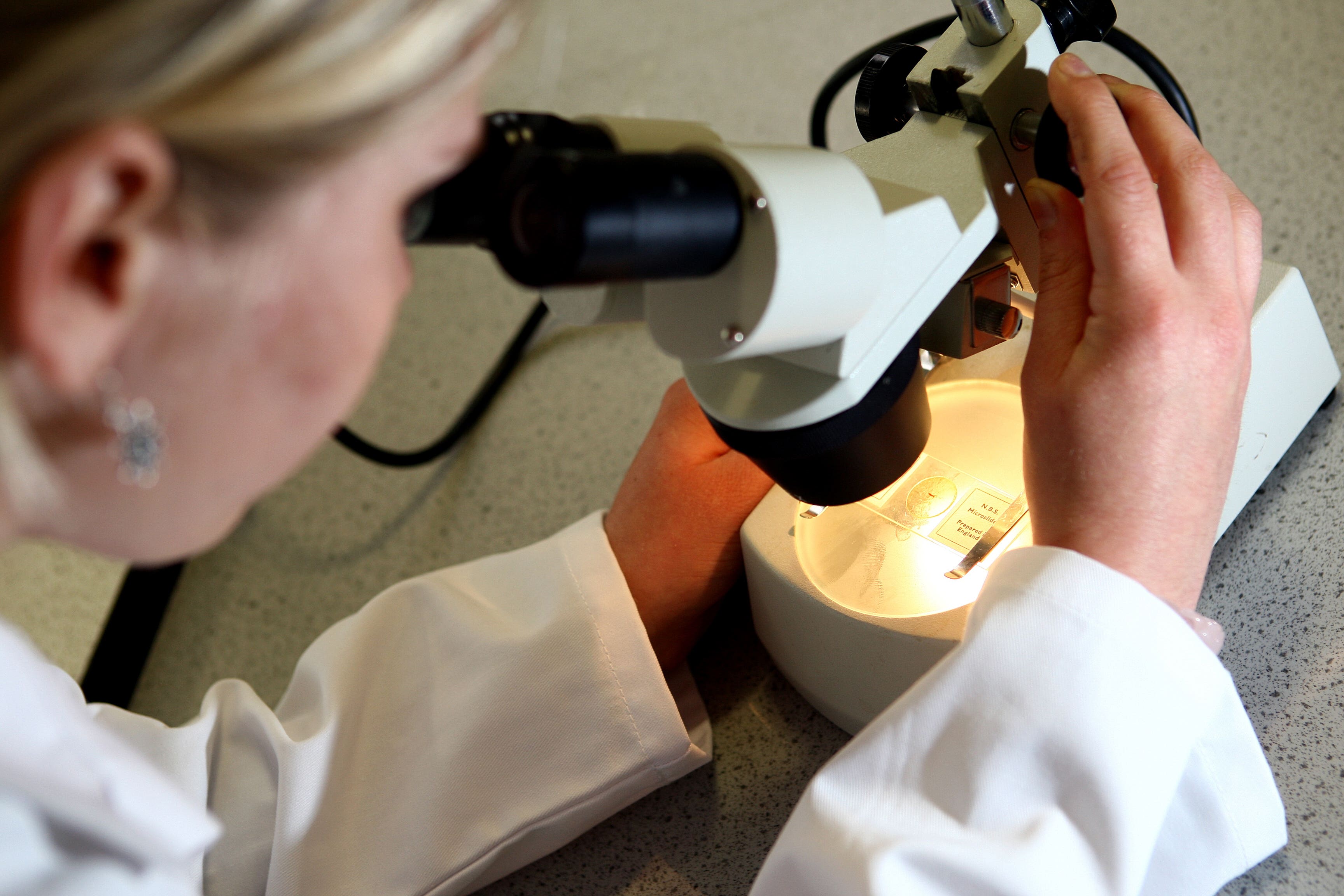Scientists awarded funding to search for pancreatic cancer test
The location and function of the pancreas make it a difficult cancer to treat.

Scientists are to receive almost £100,000 from a cancer research charity to search for a blood test to detect pancreatic cancer.
Cancer Research UK said that currently the majority of people with pancreatic cancer are diagnosed at an advanced stage when it is difficult to treat.
As a result, pancreatic cancer is a leading cause of cancer death across the UK.
Scientists at the University of Edinburgh, led by Dr Marta Canel, will receive £97,289 from Cancer Research UK and hope to find a way to detect pancreatic cancer earlier when it can be more effectively treated.
Diagnosing pancreatic cancer at an early stage when surgery remains possible and treatment more effective is critical to patients
Dr Canel’s team will focus on particular genes called KRAS, SMAD4 and CDKN2A, which when altered cause cancer cells to divide and grow out of control.
The team aims to understand how the variations on these genes affect biomarkers – biological evidence in the blood that indicate cancer is present.
A blood test would reduce the need for invasive diagnostic biopsies which are particularly difficult given the location and vital function of the pancreas in creating insulin to regulate sugar in the bloodstream and aid digestion.
Such a test would also allow screening for the most at risk group including older people and people who develop type 2 diabetes later in life.
Dr Canel said: “The majority of patients with pancreatic cancer are diagnosed at an advanced disease stage, by which time treatment options are limited and prognosis is extremely poor.
“Relatively low incidence means many GPs will only see a new patient with pancreatic cancer every five years, and with symptoms overlapping with more common health conditions, initial diagnosis can be difficult.
“Diagnosing pancreatic cancer at an early stage when surgery remains possible and treatment more effective is critical to patients.”
Developing a blood test for diagnosis has been a key focus for pancreatic cancer research, however no biomarker has so far been identified which provides for a robust, reliable blood test.
We hope this research will provide valuable new insights into pancreatic cancer and provide hope for patients to access earlier and more effective treatment in future
Previous research by the team identified markers in the blood which can be detected when tumours are driven by specific genetic changes.
The majority of pancreatic cancer patients have tumours driven by a KRAS mutation, in addition to a number of genetic variations which can shape pancreatic cancer tumours.
Scientists said that fully mapping these could pave the way for tailored testing (known as precision medicine) for individual patients.
Dr Catherine Elliott, director of research at Cancer Research UK, said: “Precision medicine is a growing area of cancer research.
“We hope this research will provide valuable new insights into pancreatic cancer and provide hope for patients to access earlier and more effective treatment in future.”
The Edinburgh team also hopes its research may pinpoint vulnerabilities in pancreatic cancer which could be targeted by existing or new treatments such as immunotherapy which is not currently available for pancreatic cancer.
The location and function of the pancreas make it a difficult cancer to treat.
Currently, only surgery normally offers effective treatment and only if the disease is caught in time.
Bookmark popover
Removed from bookmarks